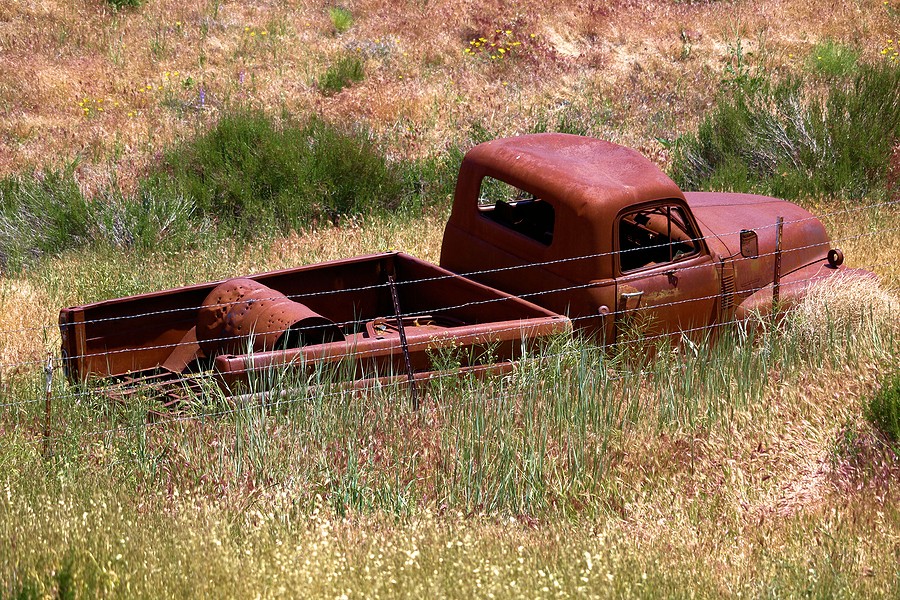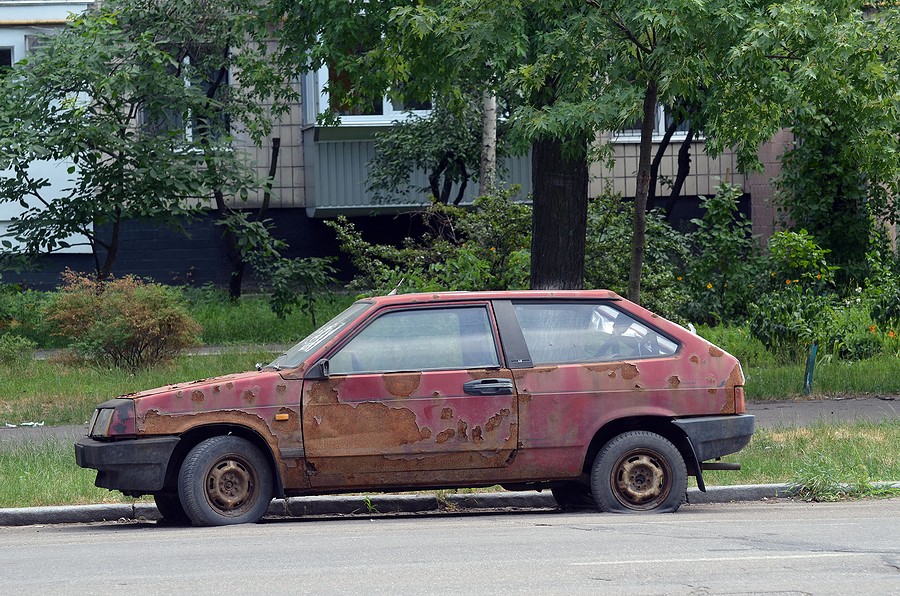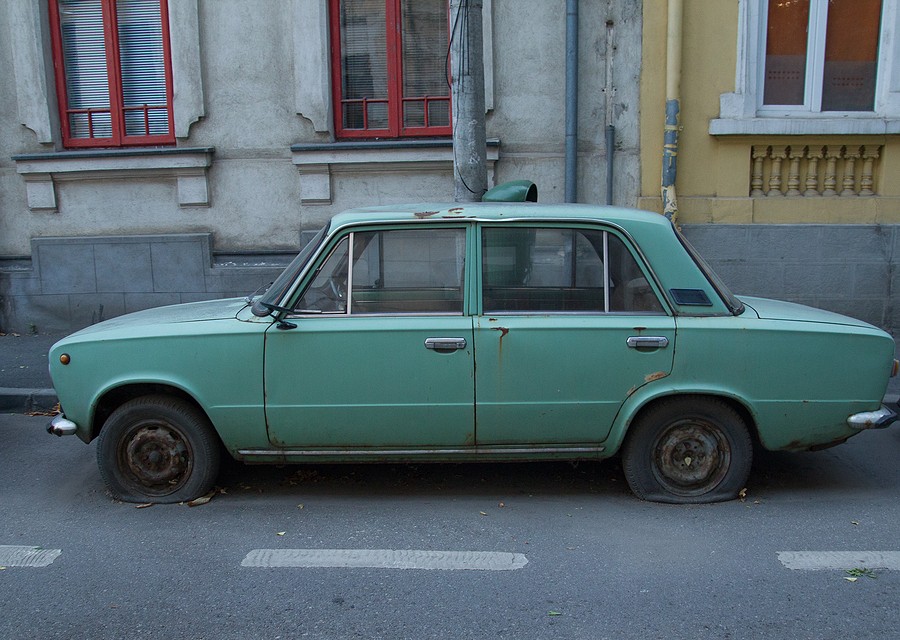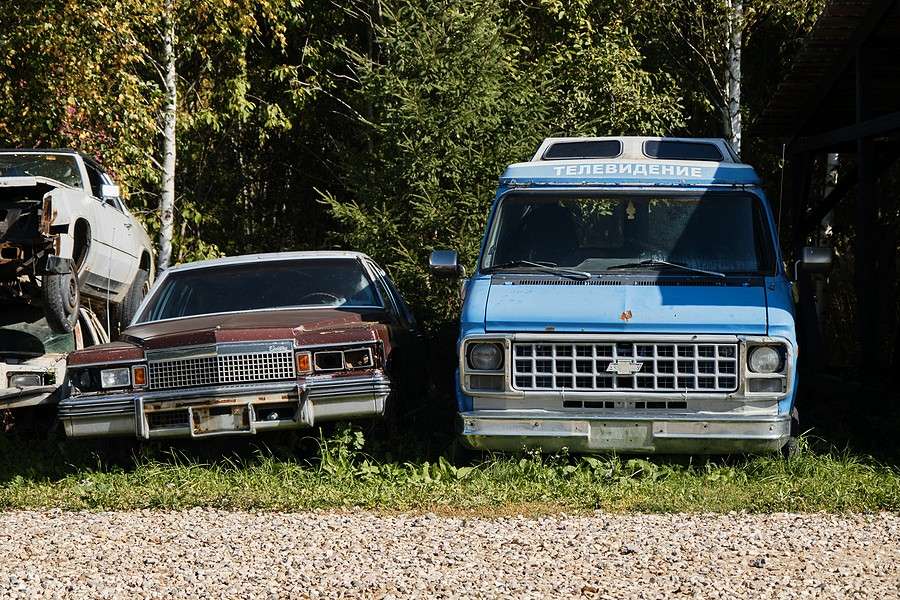If you're wondering, “is my car junk,” a junk vehicle should typically have excessive damages, major mechanical problems, high mileage, extremely low resale, or excessive rust.
Determining whether your vehicle is junk is crucial when selling cars or dealing with them overall. You should consider several factors when evaluating whether your vehicle is junk or not; these factors might impact the value of your vehicle in many different ways.
This article walks you through all factors that could impact your vehicle’s value and can help determine whether your vehicle is junk. It also provides some recommendations about what to do if your vehicle is junk.
Is my car junk?
Determining if a car is a junk can be tricky, especially for those without previous experience. Some people might think their vehicles are junk just because there is a problem with the transmission or engine problem. However, that might not be the case.
Therefore, it's critical for you as a driver to understand what makes a vehicle junk and what factors to look for when evaluating your vehicle situation. Let's take a look at some of these doctors:
1. Excessive damages
The first and most common factor that immediately determines whether your vehicle is junk or not is when you have excessive damages. Say that your vehicle was involved in a major car accident or collision that completely crushed most of the vehicle, which could result in a junk vehicle immediately.
Similarly, if your vehicle was damaged in a flood event or due to hail, the extent of the damages might be beyond repairs. In that case, your mechanic or the insurance company might tell you your vehicle is junk.
2. Major mechanical issues
Not only natural disasters or extreme conditions can lead to making your vehicle junk, but also there are some major mechanical problems to watch for. For example, if these problems significantly impact sensitive systems like the transmission or the engine, you will most likely be dealing with a junk vehicle.
However, that's not always the case. When you deal with that engine or transmission problem, you shouldn't be disappointed that the vehicle will be turned into junk because you might have some options.
As a rule of thumb, automotive experts typically recommend evaluating the overall repair cost. If you realize that repair costs are approaching 75% of the value of your vehicle, this could mean that your vehicle is junk, and you should figure out what to do with it rather than fixing it.
When evaluating your vehicle's value or the total repair costs, it's important that you account for everything. In other words, if your vehicle is due for oil changes or tire rotations, you should include that in your final repair cost.
3. High mileage or age
Not only having problems indicate that your vehicle is junk. For example, if your car has much mileage and it's getting very old, it might turn into junk just because it's approaching the end of its lifetime.
For example, if you're driving a vehicle beyond 250,000 miles, chances are that you'll start dealing with major problems related to the engine or the transmission. Even if you didn't deal with these problems, the vehicle is already approaching the end of its life cycle, and that's where you have to figure out what to do with your junk car.
4. Rust or other forms of body damage
Many situations and extreme weather conditions could lead to rust eating up your vehicle's exterior. The problem with rust is that you need help fixing the issue, especially if it gets to the frame or the deep components.
Other external body damages and form problems can also lead to converting your vehicle into change. Therefore, if your mechanic feels that the frame is damaged or needs replacement, it can be very hard to fix this problem, and therefore, you should consider selling your vehicle or dealing with it as junk.
5. Extremely low resale value
Finally, when your vehicle has a very recent low resale value, it could indicate that it is total junk. Sometimes it might not be worth your time and investment trying to fix this car or maintain it as it gets towards the end of this lifetime.
Therefore, even if you don't have any clear problems with the vehicle, once the vehicle becomes cheap, and to the point that makes any potential repairs not worth it, you should consider it as junk.

Assessing the value of your car
One of the most important pieces of information to help you determine the condition of your vehicle, whether it's junk or not, is to understand the vehicle’s resale value. Many people don't understand how much their vehicles are worth just because they've owned them for a long time, but it's critical to have this information for moving, and it's further with it dealing with your junk car.
There are many ways that you can use to help you determine your current vehicle value. Let's take a look at some of these ways:
1. Kelley Blue Book
You can start by checking the Kelley Blue Book online tool. This tool is very cool, and it allows you to input your vehicle’s information simply and gives you a range of expected values for your car. These ranges represent the minimum and maximum values your vehicle can make if you are trying to sell it.
You know that the Kelley Blue Book value does not represent any major problem in your vehicle. And other words come, if you know that your vehicle needs an engine replacement, you have to determine the repair costs and subtract them from the KBB value to get an accurate estimate of your vehicle's current value.
2. Professional mechanic
You should check with your mechanic if you're not comfortable dealing with the calculations trying to subtract any repair costs from the KBB value. Talking to the mechanic can be one of the easiest ways to help you determine the value of your vehicle and therefore help you get gathered information towards answering your question, is my car junk?
Your mechanic should have the right experience to help him identify how much people are willing to pay for your vehicle. Once you have this information, you can compare it to your repair cost center to determine whether your vehicle is junk.
3. Cash Cars Buyer online tool
Finally, if you want to avoid hiring a mechanic to help you determine the value of your vehicle, why don't you reach out to our online tool? On our home page, you should find an evaluation tool that helps you determine how much your vehicle is worth; therefore, if you're happy with it, you can move forward and sell your vehicle to Cash Cars Buyer if that's what you're looking for.

Factors that affect the value of your car
You should keep several factors in mind when determining your vehicle's value that could play a role in maintaining or decreasing the value in the future. Here are some of the factors to keep in mind:
1. The vehicle's body condition
Your vehicle is in good condition; you will be confident that the vehicle has a good resale value. However, suppose your vehicle was involved in a major car accident or damaged because of a flood or potential natural events. In that case, the value of the car will drop significantly.
2. The engine and transmission condition
Since the engine and transmission are any vehicle's core components, keeping those in good condition is critical. They can play a major role in determining your current vehicle value. If there is a minor problem you could take care of and resolve, you can enhance the current vehicle value, especially when planning to sell your vehicle soon.
3. The mileage
Your vehicle’s mileage is another important factor to help you determine whether it's valuable. If the vehicle has much mileage or it's approaching the interval of its lifetime, it could indicate that your vehicle's value is dropping.

What to do if your car is junk?
If you ask yourself, is my car junk and determine that your car is complete junk, then the next step is to determine what to do with this vehicle.
Luckily, there are several ways to help you deal with your junk vehicle, including:
1. Sell your vehicle as parts
2. Donate your junk car
3. Fix your junk car
4. Sell your junk car to Cash Cars Buyer

Final thoughts
Dealing with a junk car can be a bit stressful, but identifying whether your vehicle is junk is more critical. This article walks you through several factors that could help determine whether your vehicle is junk. It also helps to answer the question clearly, is my car junk?
Clear exterior damages, major mechanical problems, high mileage, and more are common vehicle characteristics considered junk. Therefore, if any of these sounds familiar to you, consider investigating your options as a junk car owner.
Are you tired of your junk vehicle? Are you looking for someone to buy it immediately without any hassle? Why don't you reach out to cash cars by at 7737914363?



